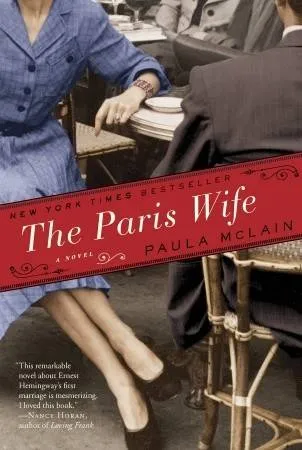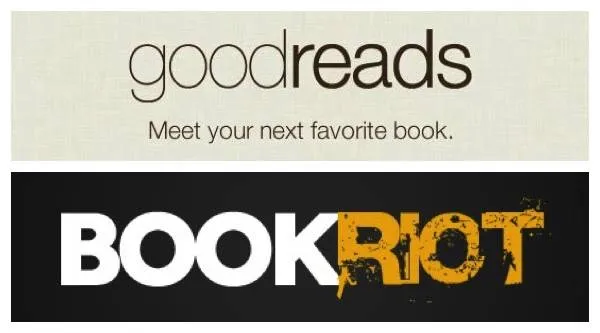
Reading As A Cure for Writer’s Block
This content contains affiliate links. When you buy through these links, we may earn an affiliate commission.
 When I teach college writing, I tell my students that there’s no such thing as writer’s block. Many people disagree with me on this, but I have found that often writers can’t get back to writing once the great brain fart occurs because they have a name and strange justification for a lack of inspiration. And this goes for any writer– from students writing research papers to poets to bloggers.
Maybe my claim is unfair, because technically I hit my wall a couple weeks ago and found it very difficult to write for days. What I’ve found in the past is that writer’s block is not necessarily because of a big blank moment in the brain, but instead some kind of emotional situation that is holding the writer back. Every once in a while, I struggle to write (in this case my own fiction) because of the questions that cause many writers to struggle to write– Is this worth my time? Who is reading my work? Should I be doing something else that brings in more money? Is this worth the struggle? And in February, the questions came sneaking back again.
Whenever I come across these really frustrating and unnecessary self-conscious thoughts (I’ve never been able to stop writing even when I wanted to. I always seem to come back), I usually sit down and force myself to write. After all, this is what I’d always read about from the tactics of famous writers:
“What I try to do is write. I may write for two weeks ‘the cat sat on the mat, that is that, not a rat.’ And it might be just the most boring and awful stuff. But I try. When I’m writing, I write. And then it’s as if the muse is convinced that I’m serious and says, ‘Okay. Okay. I’ll come.’” — Maya Angelou
There’s also a great post from Book Rioter Morgan Jerkins on leaving behind intention as a writer, which is another awesome plan of writer’s block attack.
This time, though, writing through it didn’t work. I was distracted by the other things in my life that felt more demanding. Focus went out the door. For a couple of days, this made me wonder how many poor college students I had disappointed by labeling their claim as an excuse. Yet, I’m still pretty certain that writer’s block is not actually a block, but a brief phase. Something to work through. This time, I picked up a book looking for something that could approach frustration.
So that’s why I finally read The Paris Wife. Shockingly, it helped. It still feels like everybody and their mother has probably read and hated or loved this book. I’m late to reading this one, though this is pretty common for me since my reading stints are finicky ones and I have shelves of TBR books. Regardless, Paula Mclain’s work had a really important purpose for me this week. Based on Ernest Hemingway’s life, and from the viewpoint of his first wife in Paris, this novel brings forward a fictional version of their relationship, their skiing, their baby’s birth, and Hemingway’s intense focus on writing, masculinity, and competition.
Why on Earth would this book help me? Because sometimes the best way to understand frustration is to find that emotion distilled down in another person’s characters and watch how it pans out. I am a lucky writer because I don’t have nearly the issues of Hemingway in Paris in the Jazz Age. I have other battles, but I have other positive traits (like fewer unnecessary boxing matches). I got this.
So, maybe writer’s block is different every time– maybe it’s unfair for me to provide a kind of elixir, process, or tonic to get your brain moving again. But, you can always try this: If the complications of the world are coming in the way of your writing, find a way to step out of your head and see the issues of the writing world from a distance. If that’s reading a book instead of writing for a few days, then so be it.
____________________
Like chattin’ up other readers and keeping track of your books on Goodreads? So do we! Come give us a follow.
When I teach college writing, I tell my students that there’s no such thing as writer’s block. Many people disagree with me on this, but I have found that often writers can’t get back to writing once the great brain fart occurs because they have a name and strange justification for a lack of inspiration. And this goes for any writer– from students writing research papers to poets to bloggers.
Maybe my claim is unfair, because technically I hit my wall a couple weeks ago and found it very difficult to write for days. What I’ve found in the past is that writer’s block is not necessarily because of a big blank moment in the brain, but instead some kind of emotional situation that is holding the writer back. Every once in a while, I struggle to write (in this case my own fiction) because of the questions that cause many writers to struggle to write– Is this worth my time? Who is reading my work? Should I be doing something else that brings in more money? Is this worth the struggle? And in February, the questions came sneaking back again.
Whenever I come across these really frustrating and unnecessary self-conscious thoughts (I’ve never been able to stop writing even when I wanted to. I always seem to come back), I usually sit down and force myself to write. After all, this is what I’d always read about from the tactics of famous writers:
“What I try to do is write. I may write for two weeks ‘the cat sat on the mat, that is that, not a rat.’ And it might be just the most boring and awful stuff. But I try. When I’m writing, I write. And then it’s as if the muse is convinced that I’m serious and says, ‘Okay. Okay. I’ll come.’” — Maya Angelou
There’s also a great post from Book Rioter Morgan Jerkins on leaving behind intention as a writer, which is another awesome plan of writer’s block attack.
This time, though, writing through it didn’t work. I was distracted by the other things in my life that felt more demanding. Focus went out the door. For a couple of days, this made me wonder how many poor college students I had disappointed by labeling their claim as an excuse. Yet, I’m still pretty certain that writer’s block is not actually a block, but a brief phase. Something to work through. This time, I picked up a book looking for something that could approach frustration.
So that’s why I finally read The Paris Wife. Shockingly, it helped. It still feels like everybody and their mother has probably read and hated or loved this book. I’m late to reading this one, though this is pretty common for me since my reading stints are finicky ones and I have shelves of TBR books. Regardless, Paula Mclain’s work had a really important purpose for me this week. Based on Ernest Hemingway’s life, and from the viewpoint of his first wife in Paris, this novel brings forward a fictional version of their relationship, their skiing, their baby’s birth, and Hemingway’s intense focus on writing, masculinity, and competition.
Why on Earth would this book help me? Because sometimes the best way to understand frustration is to find that emotion distilled down in another person’s characters and watch how it pans out. I am a lucky writer because I don’t have nearly the issues of Hemingway in Paris in the Jazz Age. I have other battles, but I have other positive traits (like fewer unnecessary boxing matches). I got this.
So, maybe writer’s block is different every time– maybe it’s unfair for me to provide a kind of elixir, process, or tonic to get your brain moving again. But, you can always try this: If the complications of the world are coming in the way of your writing, find a way to step out of your head and see the issues of the writing world from a distance. If that’s reading a book instead of writing for a few days, then so be it.
____________________
Like chattin’ up other readers and keeping track of your books on Goodreads? So do we! Come give us a follow.










